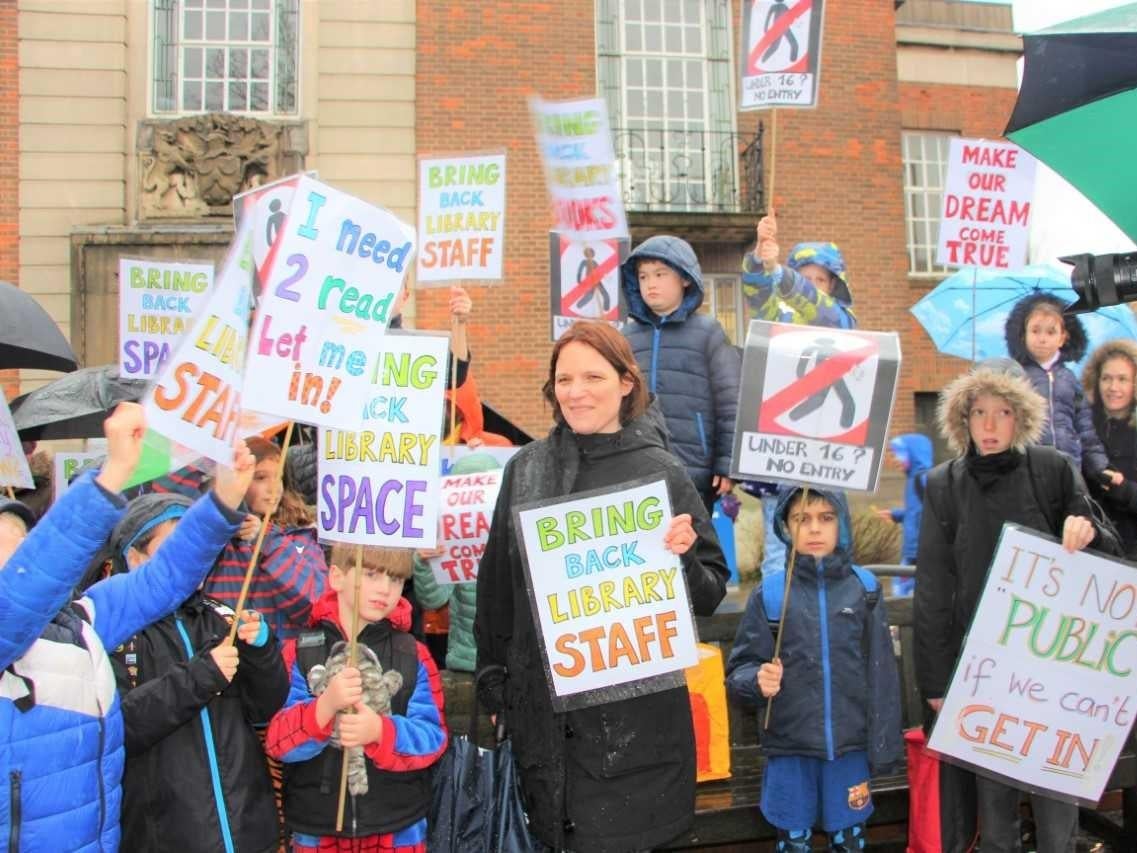Coronavirus: Hundreds of libraries could close amid Covid-19 crisis, warn campaigners
‘Every service in the country is expecting to be hammered’

Hundreds of libraries across the UK could be closed amid the economic devastation wrought by coronavirus, campaigners have warned.
The decade of austerity – in which 773 such centres were shut down – may “pale” alongside what follows the Covid-19 crisis, the Library Campaign charity has said.
“Councils are going to be cutting anything they can lay their hands on because the situation is so severe,” Laura Swaffield, chair of the group, told The Independent. “And in these situations, we know from years of experience, they come for libraries because they are seen as an easy target. The numbers lost are not going to be good."
The stark prediction comes as new figures published by Libraries Connected, which represents the sector, showed footfall at sites across the UK was currently just 15 per cent compared to this time last year.
The reduction is being put down to apprehension among regular users to return to a service explicitly built on sharing books and computer facilities – an apprehension thought to be heightened because such users tend to come disproportionately from age, ethnic and social groups which have been especially hard hit by Covid-19.
Although no closures have yet been announced, many have yet to reopen, and librarians are said to believe it is only a matter of time amid ever-increasing signs that local councils – which run the services – are facing an unprecedented financial crisis.
Town halls have had to ramp up spending on health and social care provisions – such as developing test and trace systems or housing rough sleepers – while simultaneously losing income from tax, parking, leisure fees and public transport. Money the government promised to make up the shortfall has yet to materialise.
Already Leeds City Council, the second biggest unitary authority in the country, has warned it may have to pare back services to those that are legally required only – a course of action which it is thought would result in dozens of smaller branch libraries being closed and bigger ones reduced to a skeletal offering.
Without government intervention, campaigners say it is inevitable a similar fate will await hundreds more of the country's 3,500 centres.
Most are already operating at reduced hours with many suburban and village facilities only currently opening opening for a couple of days a week or less. In once area, Sandwell in the West Midlands, all libraries still remain shut following their closure for the national lockdown.
While campaigners accept that these measures are reasonable while trying to reduce community transmission of Covid-19, there is also increasing unease that such a sustained reduction could quickly lead to permanent closure.
“It is the British Rail effect,” said Swaffield, whose group was created in 1984. “As the service is cut, it attracts fewer users which is then used as a rationale to cut still further.”
Crucially, such cuts would - in direct contrast to the government's levelling up agenda - almost certainly hit the country's most deprived communities the hardest.
“For people who haven’t got internet access – and this is something, of course, that effects the most deprived people in our society – libraries absolutely vital,” said Swaffield. “I don’t know what they have done during the pandemic because when things like universal credit insist you spend hours on line every day applying for it and looking for jobs, what the heck are you supposed to do if you have no library?
“For these people, access to their local service is life and death. There are 8.5 million people in this country without a computer and for them the library is a lifeline.”
The comments follow reports in Glasgow that people have been stood outside closed libraries trying to access the wi-fi.
Patrick Harvie, leader of Scottish Greens, said people were taking the desperate measures so they could apply for jobs, pay bills before services were cut and claim benefits owed to them.
Ian Anstice, a librarian who runs the super-comprehensive Public Libraries News website, said he also feared for the future.
"Every service in the country is expecting to be hammered at some stage as councils come to the end of their financial year and count how little money they have," he said. "The result of that is that, unless the government does come up with loads of money – and who knows, they have done that on occasion recently – unless they do that, there could well be something akin to austerity coming down the line.”
Figures released in December showed that there were 4,356 libraries in 2010 in the UK. By the start of this year, just 3,583 were left. Spending on libraries in the same period was reduced from around £1 billion a year to £750 million.
The Ministry of Housing, Communities and Local Government has been contacted for comment.
Join our commenting forum
Join thought-provoking conversations, follow other Independent readers and see their replies
Comments
Bookmark popover
Removed from bookmarks